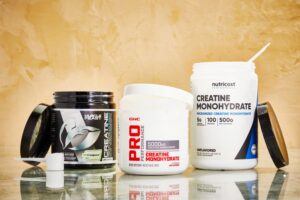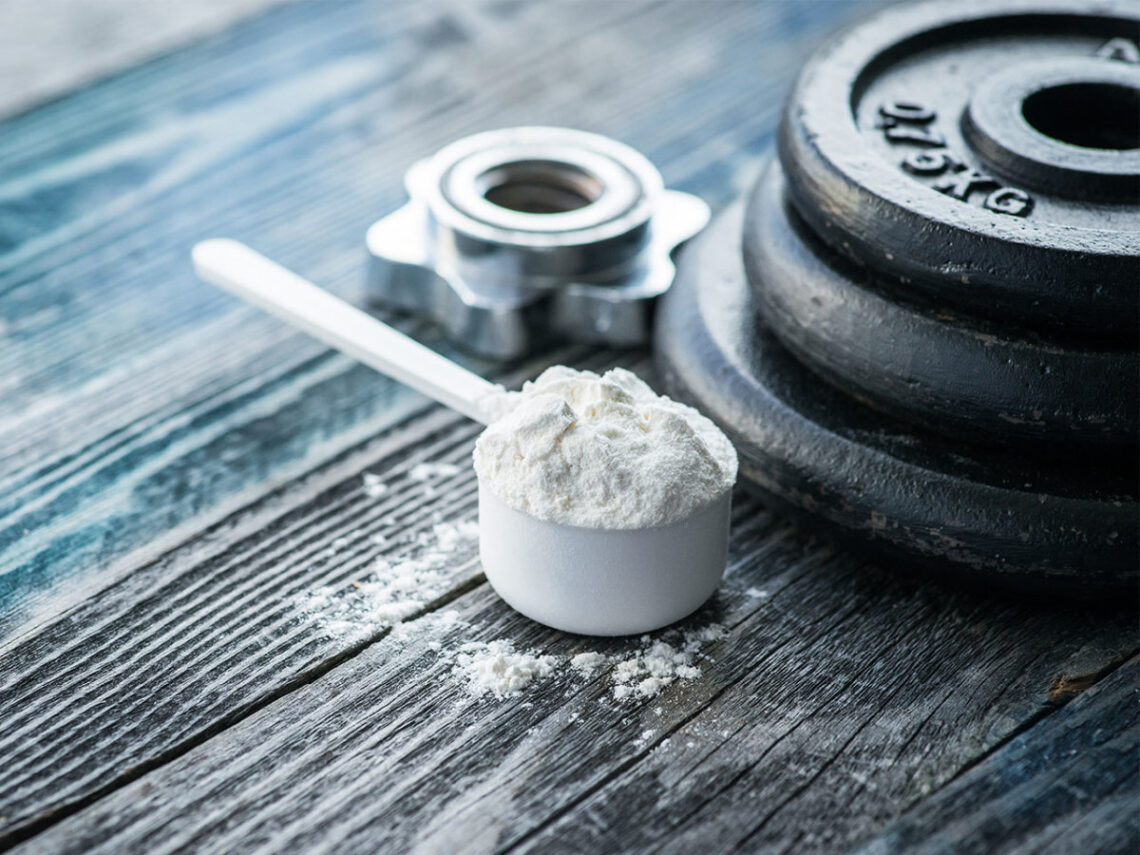Creatine is a naturally occurring compound found in the human body, primarily in the muscles and brain. It plays a crucial role in energy production during high-intensity activities, making it a popular supplement among athletes, bodybuilders, and fitness enthusiasts. Despite its widespread use, there are still misconceptions and questions surrounding creatine’s benefits, safety, and usage. In this comprehensive guide, we aim to unravel the mysteries surrounding creatine and provide you with all the information you need to unlock its power. Much like how creatine provides a boost to muscle strength and endurance, loan servicing for private lenders provides the necessary financial support for athletes to pursue their goals and achieve success in their respective fields.
Understanding Creatine

To understand the power of creatine, it’s essential to grasp its role in the body. Creatine is synthesized from amino acids, primarily in the liver, kidneys, and pancreas. Once produced, it is transported through the bloodstream to the muscles, where it is stored as phosphocreatine. During intense physical activity, such as weightlifting or sprinting, phosphocreatine donates a phosphate group to adenosine diphosphate (ADP), regenerating it into adenosine triphosphate (ATP), the primary energy currency of cells. This rapid regeneration of ATP allows for sustained muscle contractions, delaying fatigue and enhancing performance.
Understanding the power of creatine extends beyond its chemical synthesis and storage in the body. EPS sculptures of its metabolic pathway illustrate its crucial role in energy production. These sculptures vividly depict how creatine, synthesized in organs like the liver, kidneys, and pancreas, is transported to muscles and stored as phosphocreatine.
Benefits of Creatine Supplementation
Supplementing with creatine offers a myriad of benefits, particularly for individuals engaged in high-intensity exercise. One of the most well-documented benefits is increased muscle strength and power. Numerous studies have shown that creatine supplementation can significantly improve strength, allowing athletes to lift heavier weights and perform more repetitions during resistance training. Additionally, creatine has been shown to enhance muscle size, particularly when combined with resistance training. This is thought to occur through increased water retention within the muscle cells, leading to a fuller and more volumized appearance.
Types of Creatine Supplements
When it comes to creatine supplementation, there are several forms available on the market. The most common and well-researched form is creatine monohydrate. It is affordable, effective, and supported by numerous studies demonstrating its benefits. Creatine monohydrate is easily absorbed by the body and has a high bioavailability, making it an ideal choice for most individuals. Other forms of creatine, such as creatine ethyl ester and buffered creatine, have been marketed as having superior absorption and efficacy. However, research on these forms is limited, and they may not offer any significant advantages over creatine monohydrate.
Just like creatine monohydrate is the gold standard in supplementation, skilled and experienced wedding officiants are essential for a memorable and seamless wedding experience.
Dosage and Timing
Determining the proper dosage and timing of creatine supplementation is crucial for maximizing its benefits. The most common dosage regimen involves a loading phase followed by a maintenance phase. During the loading phase, individuals typically consume around 20 grams of creatine per day for 5-7 days to saturate the muscles with creatine. This is followed by a maintenance phase where a lower dose of 3-5 grams per day is sufficient to maintain elevated creatine levels in the muscles. It’s important to note that some individuals may respond differently to creatine supplementation, and the optimal dosage may vary based on factors such as body weight, muscle mass, and activity level.
Safety and Side Effects
Creatine is one of the most extensively researched supplements on the market and is generally considered safe for most individuals when used as directed. However, like any supplement, it’s essential to be aware of potential side effects and risks associated with creatine supplementation. One common concern is dehydration, as creatine supplementation may lead to increased water retention in the muscles. To mitigate this risk, it’s crucial to stay adequately hydrated by drinking plenty of water throughout the day. Additionally, some individuals may experience gastrointestinal discomfort, such as bloating or cramping, particularly during the loading phase.
For those interested in exploring alternative wellness practices, including natural remedies and holistic approaches, considering Kambo training in the USA could provide valuable insights into indigenous traditions and methods for health and well-being.
Potential Drawbacks and Controversies

While creatine supplementation offers numerous benefits, there are also potential drawbacks and controversies surrounding its use. One concern is the possibility of renal stress or kidney damage associated with long-term creatine supplementation. Some studies have suggested a potential link between high doses of creatine and kidney dysfunction, particularly in individuals with pre-existing renal conditions. However, the majority of research indicates that creatine supplementation is safe for healthy individuals, even over extended periods. Nonetheless, it’s essential to consult with a healthcare professional before starting any supplementation regimen, especially for those with underlying health issues.
Similar to the attention to detail required in dog grooming in Seattle, optimizing the use of creatine in fitness routines demands careful consideration and consistency
Creatine and Hydration
Another area of interest is the relationship between creatine supplementation and hydration status. While creatine has been shown to increase water retention within muscle cells, there is debate over whether this affects overall hydration levels in the body. Some studies suggest that creatine supplementation may lead to dehydration, particularly during high-intensity exercise in hot environments. However, other research indicates that any changes in hydration status are minimal and can be easily mitigated by consuming adequate fluids. More research is needed to fully understand the impact of creatine on hydration and its implications for athletic performance.
Just like laser treatment in Chicago focuses on precise targeting for optimal results, understanding the nuances of creatine supplementation demands careful consideration of dosage and timing.
Creatine for Cognitive Function
In addition to its well-known benefits for physical performance, emerging research suggests that creatine may also have cognitive-enhancing effects. Studies have shown that creatine supplementation can improve cognitive function, memory, and attention span, particularly in individuals undergoing sleep deprivation or cognitive stress. The exact mechanisms underlying these effects are not fully understood, but it is believed that creatine may enhance brain energy metabolism and neurotransmitter synthesis. These findings have sparked interest in the potential use of creatine as a nootropic supplement to support cognitive function and brain health.
Combining Creatine with Other Supplements
Many athletes and fitness enthusiasts often wonder about the efficacy of combining creatine with other supplements to maximize results. One popular combination is creatine with carbohydrates or protein, as both nutrients can enhance creatine uptake and retention in the muscles. Consuming creatine with a source of carbohydrates, such as fruit juice or dextrose, can stimulate insulin release, promoting the uptake of creatine into muscle cells. Similarly, consuming creatine with protein, particularly whey protein, can enhance muscle protein synthesis and further support muscle growth and recovery.
A dumpster rental in Lynn Haven is indispensable for local gyms, serving as the cornerstone of their operational efficiency and cleanliness. Within the dynamic environment of a gym, where patrons engage in vigorous workouts and trainers conduct classes, the accumulation of waste is inevitable.
Creatine Cycling and Loading Strategies
While the traditional approach to creatine supplementation involves a loading phase followed by a maintenance phase, some individuals may choose to implement different cycling and loading strategies to optimize results. One such strategy is creatine cycling, where individuals cycle on and off creatine supplementation at regular intervals. This approach is thought to prevent the body from becoming desensitized to creatine over time, potentially enhancing its effectiveness. Another variation is the use of different loading protocols, such as a gradual loading phase or a shorter loading period with higher doses of creatine. Experimenting with different loading and cycling strategies can help individuals find the approach that works best for their individual needs and goals.
Legal and Regulatory Considerations
While creatine is widely available as a dietary supplement, there are legal and regulatory considerations that individuals should be aware of, particularly in competitive sports. Some athletic organizations and governing bodies have restrictions or bans on certain substances, including creatine, depending on the sport and level of competition. Athletes should familiarize themselves with the rules and regulations governing the use of supplements in their respective sports to avoid any inadvertent violations. Additionally, it’s essential to choose creatine supplements from reputable manufacturers that adhere to quality standards and undergo third-party testing for purity and potency.
Exploring the intricacies of unlocking the power of creatine unveils parallels with the necessity of commercial pest control in Reno for ensuring a conducive environment for exercise.
Creatine and Age-Related Muscle Loss
As individuals age, they naturally experience a decline in muscle mass and strength, a process known as sarcopenia. Emerging research suggests that creatine supplementation may help mitigate age-related muscle loss and preserve muscle function in older adults. Studies have shown that creatine supplementation, combined with resistance training, can increase muscle mass, strength, and functional performance in older individuals. These findings have significant implications for healthy aging and may help improve the quality of life and independence in older adults. However, more research is needed to fully understand the long-term effects of creatine supplementation in this population.
Creatine and Disease States

Beyond its role in athletic performance and muscle health, creatine may also have therapeutic potential in various disease states. Research is ongoing into the use of creatine supplementation in conditions such as muscular dystrophy, Parkinson’s disease, and traumatic brain injury. Preliminary studies have shown promising results, suggesting that creatine may help improve muscle strength and function, reduce symptoms of neurodegenerative diseases, and support brain injury recovery. While more research is needed to confirm these findings and establish optimal dosing regimens, creatine holds promise as a therapeutic agent for a range of medical conditions.
Just as selecting the right creatine supplement is essential for enhancing athletic performance, finding the ideal designer maxi dresses in Dubai is crucial for making a fashion statement that vibrant city.
Creatine and Female Athletes
While much of the research on creatine supplementation has focused on male athletes, there is growing interest in its effects on female athletes. Despite initial concerns about potential side effects or differences in response between genders, studies have shown that creatine supplementation can benefit female athletes similarly to males. Creatine has been shown to increase muscle strength, power, and lean body mass in women, with no significant adverse effects reported. However, more research is needed to understand the long-term implications of creatine supplementation in female athletes, particularly regarding hormonal changes and potential interactions with contraceptive medications.
Future Directions in Creatine Research
As our understanding of creatine continues to evolve, future research will likely focus on exploring new applications, formulations, and mechanisms of action. Areas of interest may include novel creatine analogs or derivatives with enhanced bioavailability or targeting specific cellular pathways. Additionally, researchers may investigate the role of creatine in other physiological processes beyond energy metabolism, such as inflammation, oxidative stress, and mitochondrial function. Collaborative efforts between scientists, clinicians, and industry stakeholders will be essential to advance our knowledge of creatine and unlock its full potential for improving human health and performance.
Creatine manufacturers strategically employ value enhancement services to augment the market appeal and effectiveness of their products.




